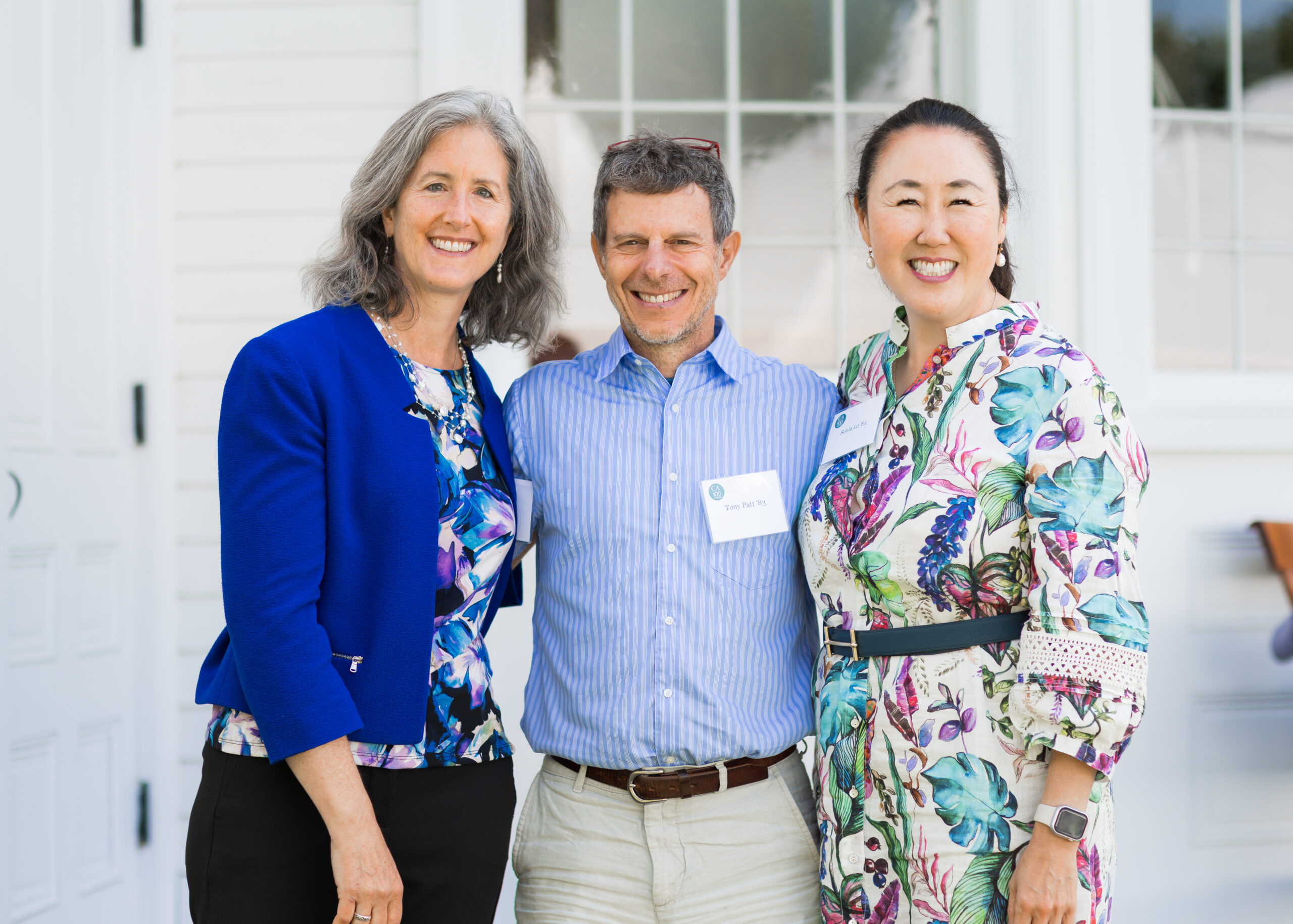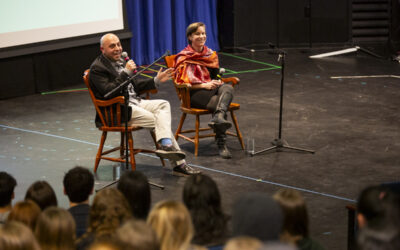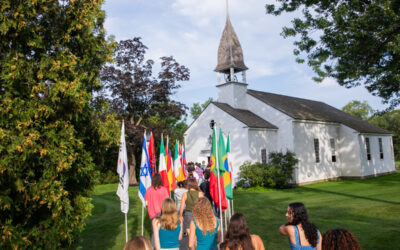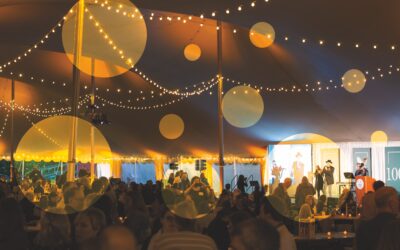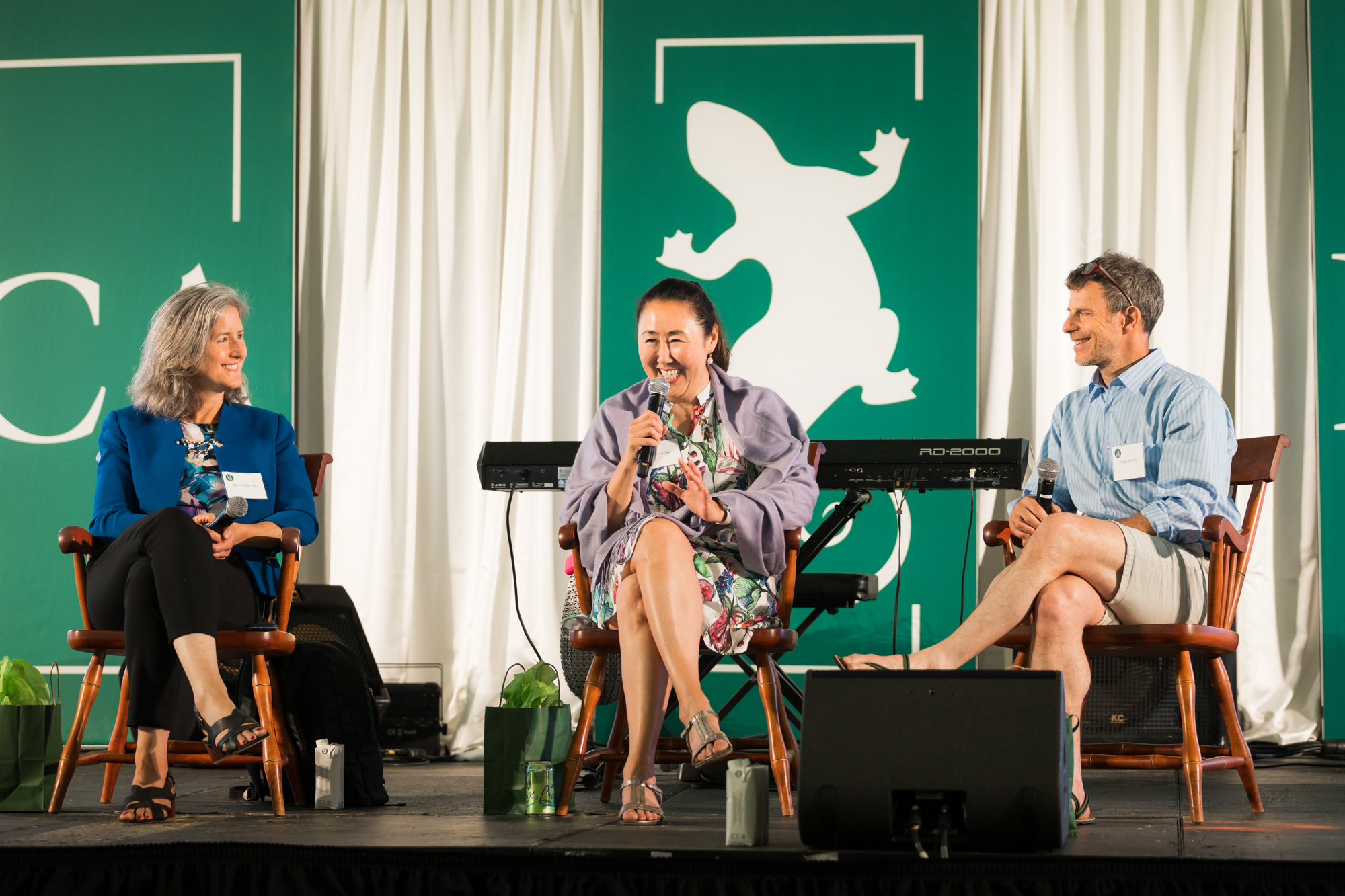
On June 10, during Concord Academy’s Centennial Celebration, one of several Centennial Speaker Series conversations, “Designing for Resilience and Sustainability: The Future is Up to Us,” took place under the tent. A lively discussion brought together institutional, technological, and political frameworks for addressing the climate crisis and envisioning and creating more sustainable human systems.
Tony Patt ’83 has been a professor of environmental science, focusing on climate policy, at a federal university in Switzerland for the past 10 years. For the Intergovernmental Panel on Climate Change, he assesses the impact of international cooperation and national action. He has grown more and more optimistic over the course of his career about the world’s ability to stop emitting carbon dioxide within 30 years. “I’m convinced we can actually do that,” he said, and he based his confidence on the historical examples of rapid transitions in technology adoption, such as from horse and buggy to automobiles. “We’ve made huge numbers of societal transformations, and we’ve made them quickly,” he said.
How we collaborate will determine our effectiveness, Lisa Dreier ’85 emphasized. After working for years for environmental nonprofits, she now directs the Systems Leadership Lab, which provides practical, accessible tools to enable leaders across commercial and philanthropic sectors to drive systems change. In the conversation at CA, she focused on the ripple effect: the big differences seemingly small actions taken on individual, institutional, and systemic levels can make in catalyzing change. Recognizing common goals and partnering across society are vital to this process, she said. The biggest challenge—and opportunity—she identified lies in working with leaders to mobilize action based on a belief that change is possible. “Most are stuck in business-as-usual, and that’s becoming less viable,” she said. “We need more leaders who are willing to take big leaps and risks.”
Sonia Lo ’84 focuses on transforming our industrial agricultural system, which she said “pretends to be viable, and it actually isn’t.” She spoke about her unlikely journey from venture capitalism into high-tech farming, her deep immersion over the past 12 years in climate and diet, and her goal of building a transformative model for growing and distributing food. With an insider’s view, she explained the structural barriers that keep venture capitalists investing in short-term gains instead of long-term vision. Because it’s opportunistic, she said, venture capital “very rarely creates true innovation, and it never creates true innovation in things that are infrastructural” because investors are disincentivized from doing that. “We have to close that capital gap,” she said.
The speakers answered questions from a number of engaged CA alums on a wide array of ecological topics as diverse as the efficacy of solar and wind technologies to the possibilities for alternative economic models to emerge to counter the increasing inequality that contributes to many of our ecological challenges.
The discussion closed with each speaker sharing a hope. Dreier mentioned the passion of young people who haven’t yet “gotten bogged down” in the status quo. Lo’s hope lies in further technological advances—she is eagerly watching the development of a next-generation atmospheric water generation device.
Patt focused on the relational and narrative aspects of culture change, and ways to reach across divisive ideological barriers. “I’m hopeful that we’ve gotten over this fetish with authoritarianism and maybe we’ll figure out how to move democracy forward again without it,” he said. Doing so will require “a lot of compassion,” particularly toward people we might not agree with, as well as recognizing that “politics isn’t about rational arguments,” he said. “It’s about emotion and the power of stories to create the emotions which can help us move forward in a positive way.
